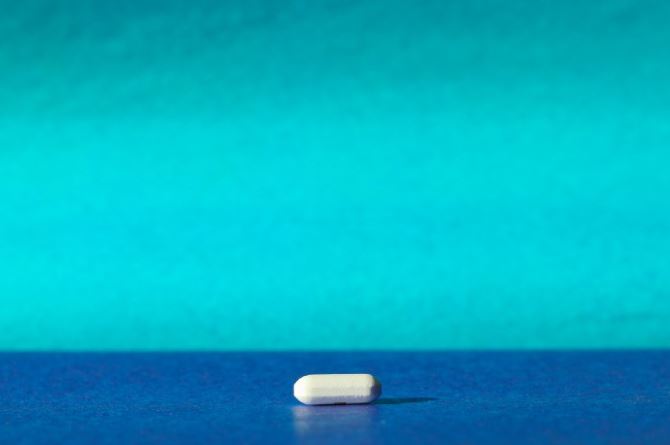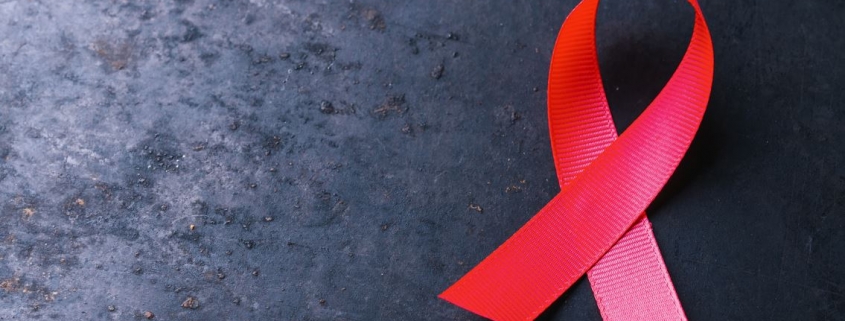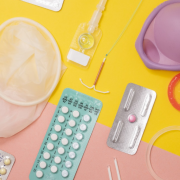How PrEP Therapy Slows the Spread of HIV
Lower your sexual risk with pre-exposure prophylaxis (Prep).
Each year we celebrate LGBTQ+ PRIDE month. In 2020, the world had a crash course in #stoppingthespread of Coronavirus. This month is a perfect time to prevent the transmission of another virus infecting 40,000 Americans each year — HIV.
HIV is not a disease limited to men who have sex with men. One million people in the US are at risk of acquiring HIV.
HIV is increasing among all demographics, especially young people. It is time that patients and health care professionals change the way we think about HIV prevention.
Pre-exposure prophylaxis (or PrEP) is a way for HIV negative people, who are at high risk, to prevent HIV infection by taking a pill every day. The pill (Truvada®) contains two medicines (tenofovir and emtricitabine) used in combination with other medicines to treat HIV. When someone is exposed to HIV through sex or injection drug use, these medications can work to keep the virus from establishing a permanent infection.
When taken daily, PrEP is highly effective for preventing HIV.
Studies have shown that PrEP reduces the risk of getting HIV from sex by about 99%. Among people who inject drugs, PrEP reduces the risk of getting HIV by at least 74%. PrEP is much more effective when taken consistently every day.
As PrEP only protects against HIV, condoms are important for protection against other STDs.
How does PrEP work?
What is the difference between PrEP and PEP?
- Post = after
- Pr = before
- Exposure = coming into contact with HIV
- Prophylaxis = treatment to prevent an infection from happening
Post-exposure prophylaxis (PEP) is an HIV prevention strategy where HIV-negative individuals take HIV medications after coming into contact with HIV to reduce their risk of becoming infected. PEP is a month-long course of drugs and must be started within 72 hours after possible exposure.
Preexposure prophylaxis (PrEP) is a proactive approach. Sexually active people take medication daily to reduce their risk.
Who does PrEP work for
PrEP has been shown to help reduce HIV infection risk in multiple studies. The iPrEx trial showed that PrEP reduces the risk of HIV infection among gay and bisexual men and transgender women. Two large trials, Partners PrEP, and TDF2, showed that PrEP also reduces the risk of HIV infection among heterosexual men and women. The Bangkok Tenofovir Study demonstrated that PrEP works for people who inject drugs.
Effectiveness
Truvada for PrEP provides a 92%-99% reduction in HIV risk for HIV-negative individuals who take the pills every day as directed. If a daily dose is missed, the level of HIV protection may decrease.
PrEP therapy only works if you take it.
People who use PrEP correctly and consistently have higher levels of protection against HIV. According to data analysis from the iPrEx study that found PrEP to be effective:
- For people who take 7 PrEP pills per week, their estimated level of protection is 99%.
- For people who take 4 PrEP pills per week, their estimated level of protection is 96%.
- For people who take 2 PrEP pills per week, their estimated level of protection is 76%.
There are not enough data available to provide specific timing guidance on non-daily use, so the FDA recommends PrEP be used daily to achieve the highest level of protection.
A few things to note:
- When starting PrEP, it takes at least seven days to reach high levels of protection against HIV.
- When stopping PrEP, individuals should continue using PrEP for four weeks after the last significant exposure.
- PrEP does not protect against other sexually transmitted infections (STI) or pregnancy. It is not a cure for HIV.

Photo by Olga Khabarova on Unsplash
Medication options for PrEP
Two medications, sold under the brand names Truvada® and Descovy® are approved for daily use as PrEP to help prevent a person without HIV from getting the virus from sex or injection drug use. You need to discuss your individual needs with your doctor and consider the possible side effects of each drug.
Truvada and Descovy belong to a drug class known as NRTIs, which inhibit and block the virus enzyme called reverse transcriptase. By blocking the action of reverse transcriptase, both drugs in combination with another ARV work together to prevent HIV from multiplying in the body. Both drugs are highly effective in reducing the amount of HIV in the T-cells (white blood cells).
Truvada®
Truvada is an NRTIs drug designed to intercept and inhibit or block the HIV virus enzyme called reverse transcriptase. This enzyme actively infects the DNA and uses it to make copies of the virus. Once these cells are infected, the body’s immune function becomes weaker as the viral load count increases.
Truvada, combined with another ARV medicine, work together to prevent the virus from increasing or replicating in the CD4 cells. The more a patient uses Truvada, the more its concentration in the body increases and becomes highly effective in reducing the amount of HIV in the T-cells (white blood cells).
As PrEP, Truvada intercepts the virus before it enters into the body. PrEP is an effective strategy where the active substances in Truvada stay alert to kill the virus in its early stages before it inhibits the cell DNA causing AIDS.
- You must be HIV-negative before you start and while taking TRUVADA for PrEP. Do not take TRUVADA to reduce the risk of getting HIV-1 unless you are confirmed to be HIV-negative.
- Get tested for HIV-1 immediately before and at least every 3 months while taking TRUVADA.
- If you think you were exposed to HIV-1, tell your healthcare provider right away.
- Many HIV-1 tests can miss HIV-1 infection in a person who has recently become infected. If you have flu-like symptoms, you could have recently become infected with HIV-1. Tell your healthcare provider if you had a flu-like illness within the last month before starting or at any time while taking TRUVADA.
- You must continue to use safer sex practices. Just taking TRUVADA for PrEP may not keep you from getting HIV-1.
Serious side effects of TRUVADA may also include:
- Kidney problems, including kidney failure. Your healthcare provider will do blood and urine tests to check your kidneys before and during treatment with TRUVADA. If you develop kidney problems, your healthcare provider may tell you to stop taking TRUVADA.
- Too much lactic acid in your blood (lactic acidosis), which is a serious but rare medical emergency that can lead to death. Tell your healthcare provider right away if you get these symptoms: weakness or being more tired than usual, unusual muscle pain, being short of breath or fast breathing, stomach pain with nausea and vomiting, cold or blue hands and feet, feel dizzy or lightheaded, or a fast or abnormal heartbeat.
- Severe liver problems, which in rare cases can lead to death. Tell your healthcare provider right away if you get these symptoms: skin or the white part of your eyes turns yellow, dark “tea-colored” urine, light-colored stools, loss of appetite for several days or longer, nausea, or stomach-area pain.
- Bone problems, including bone pain from softening or thinning, which may lead to fractures. Your healthcare provider may do tests to check your bones.
Common side effects in people taking TRUVADA for PrEP are headache, stomach-area (abdomen) pain, and decreased weight. Tell your healthcare provider if you have any side effects that bother you or do not go away.
Descovy®
Descovy® for PrEP is recommended to prevent HIV for people at risk through sex, excluding people at risk through receptive vaginal sex. Because Descovy has not yet been studied for HIV prevention for receptive vaginal sex, it may not be appropriate for some people.
Descovy works the same way as Truvada. It is a nucleoside reverse transcriptase inhibitor. The action of tenofovir (tenofovir diphosphate) as it enters the body is to inhibit the activity of virus reverse transcriptase, causing viral DNA chain termination.
Once the virus’s active action is terminated, there is no more replication of the virus and the CD4 cell count begins to increase in number, restoring the body’s immune function.
Descovy doesn’t cure HIV. It reduces its viral count in the T-cells and the more you consistently use this medication, the more the viral load count decreases.
Before and while taking DESCOVY for PrEP:
- You must be HIV-negative before you start and while taking DESCOVY for PrEP. You must get tested for HIV-1 immediately before and at least every 3 months while taking DESCOVY. If you think you were exposed to HIV-1, tell your healthcare provider right away. They may want to do more tests to confirm that you are still HIV-negative.
- Many HIV-1 tests can miss HIV-1 infection in a person who has recently become infected. Tell your healthcare provider if you had a flu-like illness within the last month before starting or while taking DESCOVY. Symptoms of new HIV-1 infection include tiredness, fever, joint or muscle aches, headache, sore throat, vomiting, diarrhea, rash, night sweats, and/or enlarged lymph nodes in the neck or groin.
- DESCOVY by itself is not a complete treatment for HIV-1. Do not take DESCOVY for PrEP unless you are confirmed to be HIV-1 negative.
- DESCOVY does not prevent other sexually transmitted infections (STIs). Practice safer sex by using a latex or polyurethane condom to reduce the risk of getting STIs.
- To further help reduce your risk of getting HIV-1:
- Do not miss any doses of DESCOVY. Missing doses may increase your risk of getting HIV-1.
- Know your HIV status and the HIV status of your partners. If your partner is living with HIV, your risk of getting HIV is lower if your partner consistently takes HIV treatment every day.
- Get tested for other STIs. Some STIs make it easier for HIV-1 to infect you.
- Talk to your healthcare provider about all the ways to help reduce HIV risk.
Serious side effects of DESCOVY may also include:
- Kidney problems, including kidney failure. Your healthcare provider may do blood and urine tests to check your kidneys before and during treatment with DESCOVY. If you develop kidney problems, your healthcare provider may tell you to stop taking DESCOVY.
- Too much lactic acid in your blood (lactic acidosis), which is a serious but rare medical emergency that can lead to death. Tell your healthcare provider right away if you get these symptoms: weakness or being more tired than usual, unusual muscle pain, being short of breath or fast breathing, stomach pain with nausea and vomiting, cold or blue hands and feet, feel dizzy or lightheaded, or a fast or abnormal heartbeat.
- Severe liver problems, which in rare cases can lead to death. Tell your healthcare provider right away if you get these symptoms: skin or the white part of your eyes turns yellow, dark “tea-colored” urine, light-colored stools, loss of appetite for several days or longer, nausea, or stomach-area pain.
Common side effects in people taking DESCOVY for PrEP are diarrhea, nausea, headache, fatigue, and stomach pain. Tell your healthcare provider if you have any side effects that bother you or do not go away.

Photo by Thiago Barletta on Unsplash
Ask your doctor about PrEP
Healthcare providers may never mention PrEP. Awareness is low for doctors and patients. Some providers are biased. Others are uninformed.
In my experience, some physicians are uncomfortable covering HIV prevention beyond recommending monogamy and condom use.
2/3 of newly diagnosed HIV patients had at least one visit to a health care provider in the previous six months representing a missed opportunity to save lives.
Proactive patients push providers to improve the care they provide. Never be intimated to ask for the care you deserve.
Thank you to BeingWell for publishing this article on Medium. Article originally published on Medika Life.
Blog Author: Dr. Jeff Livingston
Main Blog Photo By: Photo by christian buehner on Unsplash












